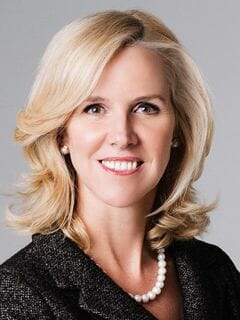December 9, 2024 - On December 5th, the LSTA hosted a webinar, Geopolitics and the Loan Market: What’s in Store for 2025, presented by Geopolitical strategist David Chmiel, who is Managing Director of Global Torchlight Limited. In a year where more than half of all countries held a national election, including many held in key global economies, Chmiel examined how those elections were shaping domestic and global politics, national economies, and trade wars.
Those elections have spawned their own upheavals around the world. Notably, a key trend emerging out of the elections is the peril of incumbency. Where an incumbent leader bucked the trend and was fortunate to have been re-elected, they did so with a substantially reduced majority. All of these elections took place against the backdrop of pessimistic populations. In a recent Ipsos survey, Indonesians and Indians were found to be more optimistic about the direction in which their countries were headed than those who lived in other countries, but it should be noted that Indian Prime Minister Modi has recently encountered economic headwinds. In the US and UK, only about one third of the populations believe their country is headed in the right direction (this is reflected in the new UK Labour government’s short honeymoon period, with many in the UK unhappy with Labour’s recent budget). That number is even smaller in continental Europe with less than 20% in France believing that France is heading in the right direction. In another Ipsos survey, both Germany and Canada, which face elections next year, have seen an uptick in how many believe their countries face a bad economic situation. Germany is currently encountering certain fundamental challenges – including a resurgence of populist political parties – and it will be critical to see how well the left and right populist parties do in next year’s elections there.
People around the world generally have a shorter term tolerance for giving their governments time to address the issues that concern them. The three things that seem to concern people the most are: (i) crime & violence (ii) inflation and (iii) poverty & inequality. Fifty percent of Americans remain concerned about inflation, and globally only about 17% are concerned about climate change. In a survey on the topic of climate change done earlier this year, people were asked the speed with which their country should transition away from fossil fuel use to renewables. In the US a little more than half the population view the move away from fossil fuels to renewables as something the US government should tackle very quickly or somewhat quickly.
Governments around the world are reviewing economic policy from a more nationalistic perspective. They are examining laws that permit foreign investment and whether they should introduce export controls or bans on the export of raw resources. Interestingly, Americans are still largely in favor of free trade, and the only recent time when more Americans viewed free trade as a bad thing was during the Global Financial Crisis and its recovery period. Today about 65% of Americans – just a bit off its all-time high – think free trade is a good thing.
Tariffs and trade wars are tied into questions of national security, competition, and related issues. China, Canada, and Mexico are currently the US’s three largest trading partners. With Mexican trade increasing and trade with China decreasing as strategic competition increases, we see the US reliance on China as trading partner declining. Trump has tied trade policy to border security, and thus we are likely to see US trade policy intermingling with other government policy. For example, Chmiel believes Trump will likely tie trade policy with how other Nato members spend on defence and whether they will increase that spending. Of course, governments will need to sell any such proposed increases to their own people. In the UK, only 30% support increased defence spending, and the populations of Italy, Spain, and France demonstrate even less support for an increase to their defence budgets than the UK population. National security may be used by governments as a cover for pure protectionism, and it will be interesting to see whether this in turn makes their economies less competitive and less innovative.
Chmiel questioned whether the reelection of Donald Trump represents a desire of Americans to see the US withdraw from the global arena and not play an active role in global affairs (less than 50% of Independents in the US support the US taking an active role). In the Ukraine, Chmiel believes that the change in administration in the US will drive negotiations between the Ukraine and Russia because the Trump administration has little interest in increasing military support for the Ukraine. For the first time, the majority of Ukrainians support seeking a negotiated settlement, and importantly this poll was taken well before the US election and thus is not due to the change in administration. Chmiel reminded us that the end to the conflict in the Ukraine will be a complicated path to resolution, and we should bear in mind that it took about 5 years of negotiations before the peace treaty was signed in the Viet Nam war.
Chmiel concluded by covering the tensions in Asia, specifically Taiwan and South Korea. Although there is an unprecedented amount of conflict in the world, we are not in World War III. Chmiel noted that if this year was one of confusion, conflict, and competition, then 2025 will be a year of divergence, drama, and “the Donald”.
Please click here for the slides and replay.






